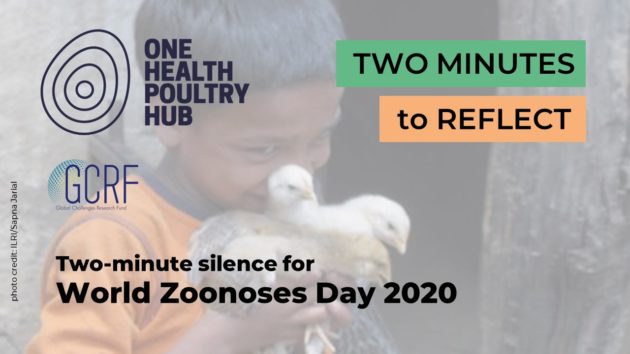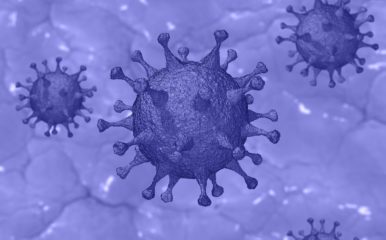
Why we are saying nothing on World Zoonoses Day 2020
Published on 30/06/2020

On Monday 6 July, World Zoonoses Day 2020, the approximately 150 partners in the One Health Poultry Hub will be silent for two minutes. It will be a time for our own private reflection on those we know, and those we don’t, who have suffered in the COVID-19 pandemic as well as from the many other endemic and emergent zoonotic diseases that blight millions of lives and livelihoods around the world each year.
We have committed to hold this silence at midday local time wherever we are, whether in our labs, our offices, at home or another location; in Asia, Europe or elsewhere in the world.
One place we know we won’t be, is in the field. The current pandemic has put a temporary stop to all our planned fieldwork, whether that might have been sampling chickens or people, learning from farmers or interviewing policymakers.
As I write, there have been more than 10 million confirmed cases of COVID-19, and over 500,000 deaths – and the pandemic has introduced the term ‘zoonoses’ to a whole new, ‘lay’ audience, raising awareness of the risks attached to zoonotic disease, and the conditions that can lead to such outbreaks, in a way that previous zoonotic disease emergences perhaps failed to do.
Our One Health Poultry Hub is concerned with zoonotic disease risks as they relate to chicken production in South and Southeast Asia. These include avian influenza (‘bird flu’), bacterial food poisoning and antimicrobial resistance. According to the World Health Organization an estimated 600 million people fall ill after eating contaminated food each year, resulting in 420,000 deaths and the loss of 33 million healthy life years (DALYs – disability-adjusted life years). The World Bank has estimated that total direct costs of H5N1 avian influenza outbreaks have exceeded US$20 billion since 2003.
There are other thought-provoking zoonotic statistics: for example, the 774 deaths from SARS in 2003, the 284,000 deaths recorded in the H1N1 (‘swine flu’) outbreak in 2009, and the more than 11,000 deaths in West Africa from Ebola virus disease in 2014-16.
However, shocking though these figures are, they are tiny in comparison to the burden of disease from zoonotic diseases that fall below the news radar. For example, just short of 30 million DALYs are lost each year due to the top five neglected tropical zoonotic parasitic infections. This is despite the rider associated with these figures that gaps in the data in poorer parts of the world is just one factor obscuring the true extent of the burden of these diseases.
As zoonoses researchers – many now engaged in the global response to COVID-19 – we are familiar with these facts. But this World Zoonoses Day, coming as it does mid-pandemic, has a particular resonance. It seems a good time, should we need one, to focus on the human lives and livelihoods lost and damaged by COVID-19, as well as to those other zoonotic diseases that fail to make it into our daily news feeds.
And that is why, at midday next Monday, 6 July 2020, we are saying nothing for World Zoonoses Day.


